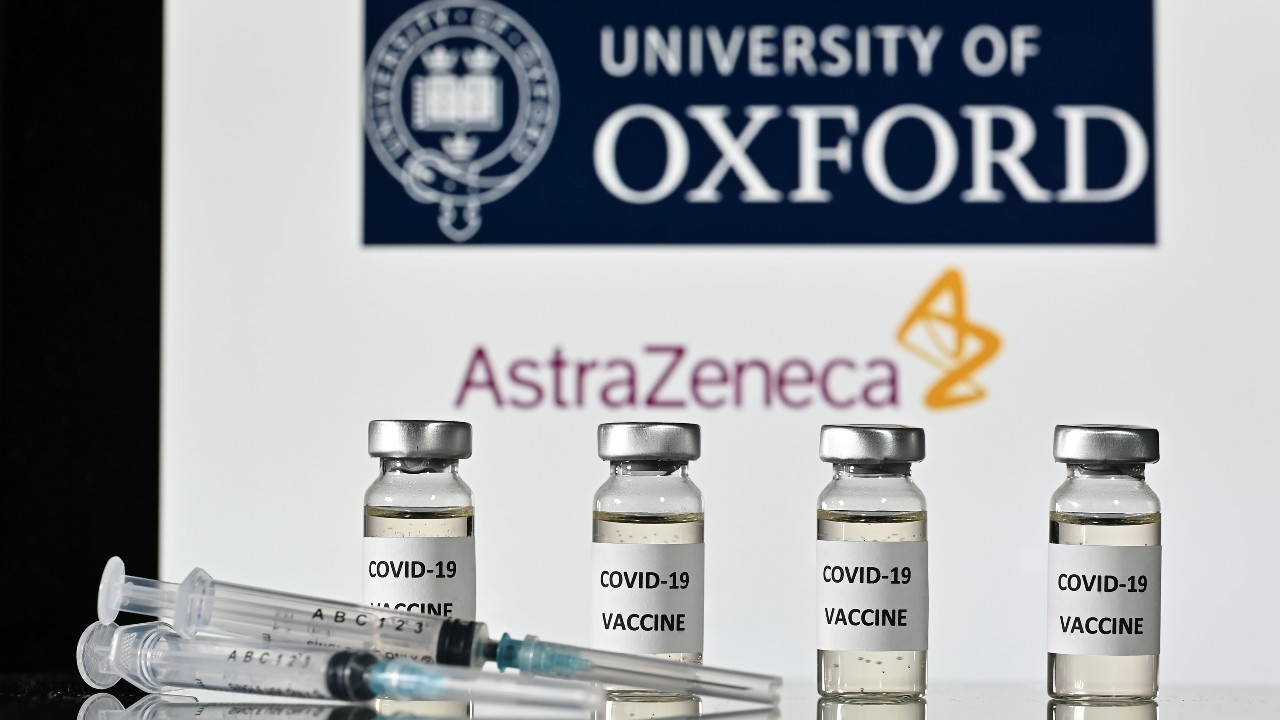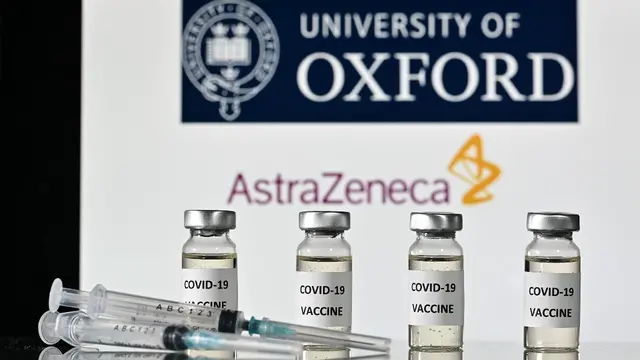
Despite good early results, the Oxford University-AstraZeneca vaccine has shown disappointing results against new variants. /Justin Tallis/AFP
A series of studies has revealed the efficacy of three types of COVID-19 vaccine against one of the most virulent new variants of the virus. Despite good previous results, the three vaccines all dropped in efficacy when tested in South Africa, where one of the most infectious variants was first discovered.
What do we know?
Oxford University-AstraZeneca
A team at the University of the Witwatersrand in South Africa found the Oxford University-AstraZeneca shot only protected against 10 percent of infections.
"What the study results really tell us is that, in a relatively young age group demographic – with very low prevalence of morbidities such as hypertension and diabetes – the vaccine does not protect against mild to moderate infection," trial leader Shabir Madhi said.
"There's still some hope that the AstraZeneca vaccine might well perform as well as the Johnson Johnson vaccine in a different age demographic that are at highest risk of severe disease," Madhi added.
In response to this news, the idea of a third "booster" injection could be used to protect recipients against developing or novel variants of the COVID-19 virus.
READ MORE
Italy's political crisis explained
Forensic toolkit vs pangolin poachers
Norway's power consumption record
Novavax
Another vaccine, produced by U.S. firm Novavax, recorded 90 percent effectiveness in trials in the UK, but a similar small-scale trial in South Africa saw that number drop to less than 50 percent.
The trial in South Africa recorded an overall efficacy rate of 49 percent success at "prevention of mild, moderate and severe COVID-19 disease," according to the company's release about the results. Through testing it was confirmed 92 percent of those cases tested in the trial were of the new variant which was first spotted in South Africa.
What makes the new variant so difficult to stop is its three key mutations, which lower the effectiveness of the current vaccines. But Novavax pointed out that despite the changes, "vaccination with NVX-CoV2373 provided significant protection."
Johnson Johnson (Janssen)
The Johnson Johnson vaccine – also known as the Janssen vaccine, as its that particular division of JJ producing the drug – was recorded as 57 percent effective against the new strain.
Crucially the Janssen jab proved to be "85 percent effective in preventing severe disease across all regions studied," according to the producer. It's also a single-injection vaccine, unlike many other options and can be stored for three months at domestic fridge temperatures.
"A one-shot vaccine is considered by the World Health Organization to be the best option in pandemic settings, enhancing access, distribution and compliance. Eighty five percent efficacy in preventing severe COVID-19 disease and prevention of COVID-19-related medical interventions will potentially protect hundreds of millions of people from serious and fatal outcomes of COVID-19. It also offers the hope of helping ease the huge burden placed on healthcare systems and communities," JJ's chief scientific officer, Paul Stoffels, said in a
statement
.
 简体中文
简体中文












